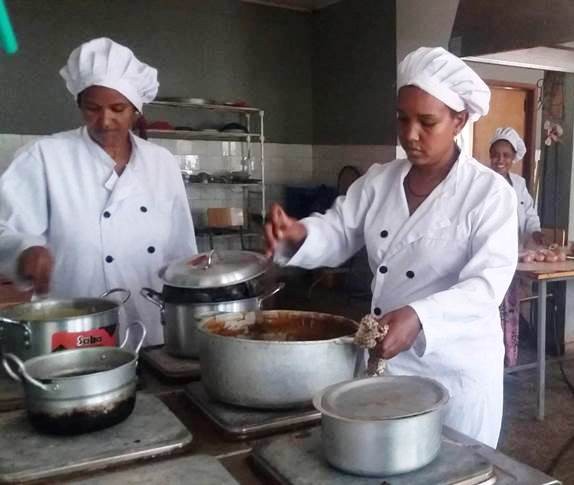
For Immediate Release
Addis Ababa, Ethiopia – Over the past three years, the United States Agency for International Development (USAID) supported the Ethiopian Center for Disability and Development (ECDD) to help hundreds of people with disabilities to prepare for and enter the workforce. The Inclusive Skills Training and Employment Program for and by persons with disabilities was designed to bolster Ethiopia’s efforts to support disability inclusive development.
Because the inclusion of people with disabilities into the workforce is a relatively new concept in Ethiopia, the program addressed the challenges faced by both the prospective employees and potential employers. Many people with disabilities in Ethiopia do not have the training and experience necessary to compete and engage in the labor market, while many employers were either unwilling or did not know how to facilitate the employment of people with disabilities.
To better prepare prospective employees with disabilities, the program worked with 21 mainstream technical vocational education and training institutes and universities to improve their institutional capacity to provide skills development training for people with disabilities and trained approximately 750 instructors and support staff. Several of these institutions are now making campuses more accessible to people with disabilities. With support from USAID, nearly 300 people with disabilities enrolled in the technical vocational education and training institutes and received skills training in areas including food preparation, making leather products, construction and metal works. ECDD also helped job seekers with disabilities to be stronger job candidates by helping them to prepare resumes and get ready for interviews.
On the other side of the equation, the program worked with the city administrations in Addis Ababa and Dire Dawa, as well as the regional administrations in Tigray and SNNP to create a more enabling environment for self and formal employment of people with disabilities. The program then worked with more than 70 companies to encourage them to hire people with disabilities for internships and paid positions and train their human resources staff on best practices for integrating people with disabilities into their workplaces. So far, 88 graduates with disabilities have secured formal jobs with employers like the Mosaic Hotel and Kedir Yasin Metal Work PLC, while another 168 have received valuable hands-on experience through internship placements in private and public sector workplaces. In addition, 93 graduates with disabilities received support to start their own individual or joint businesses.
“Before I began work, people did not want to even shake my hand, as if my blindness would pass on to them. But the situation changed after I got employed—there was a complete change of attitude. I feel my pride restored and feel respect in the community because of what I have achieved,’’ said Lukas Zida, a counselor at Otana High School in Wolayta Sodo and a program beneficiary.
Companies or organizations interested in partnering with ECDD can contact Mr. Retta Getachew, the executive director of ECDD at: ECDD, P.O Box, 1530 Code 1250, Addis Ababa, Tel: +251-11-4700014. Email: info@ecdd-ethiopia.org, Retta-G@ecdd-ethiopia.org







Comment
Make a general inquiry or suggest an improvement.